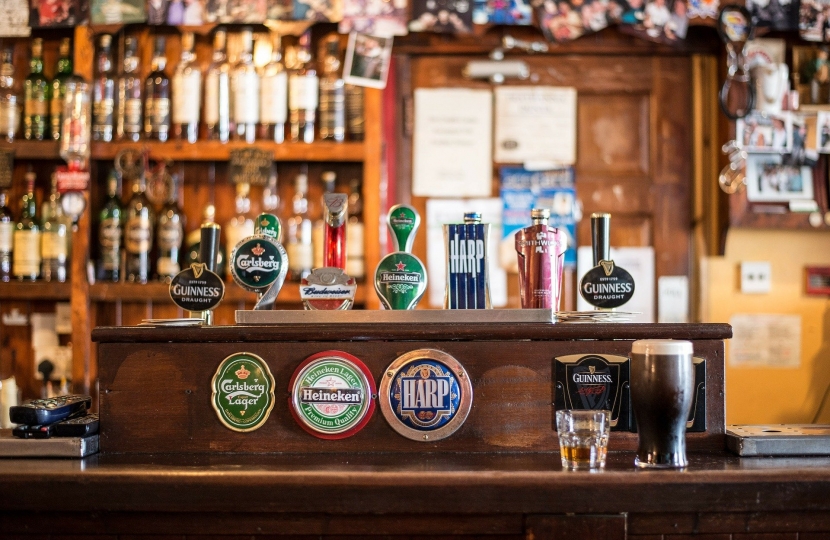
Many thanks to those who contacted me about alcohol duty.
The Autumn Budget 2021 confirmed that duty rates on beer, cider, wine and spirits will be frozen for another year, a move which will save consumers £3 billion over the next five years, and provide further support to the hospitality industry and its suppliers as they recover from the pandemic. Duty rates on draught beer and cider will be cut by 5 per cent, taking 3p off a pint and further supporting pubs.
I was glad to see the announcement in the Autumn Budget 2021 that, following a review, the alcohol duty regime is to undergo a major simplification. The old system was outdated system that set rates based on historical anomalies, and a new regime will be fairer to both consumers and producers, and promote product innovation in response to evolving consumer tastes.
This radical simplification of the duty system will reduce the number of main rates from 15 to 6, and tax products in proportion to their alcohol content.
All tax categories, such as beer and wine, will be moved to a standardised set of bands, with rates for products between 1.2-3.4 per cent alcohol by volume (ABV), 3.5-8.4 per cent ABV, 8.5-22 per cent ABV, and above 22 per cent ABV. Above 8.5 per cent ABV, all products across all categories will pay the same rate of duty if they have the same proportion of alcohol content. Registration and payment will also be simplified, and the practice where individual products have different administrative rules will end.
The new progressive manner in which alcohol is taxed will ensure higher strength products incur proportionately more duty, and these rates will be the same across all product categories. This change will address the problem of harmful high-strength products being sold too cheaply, and the new rates for low strength drinks below 3.5 per cent ABV will encourage manufacturers to develop new products at lower ABVs, giving consumers greater choice and greater options to drink responsibly.
I am pleased about the introduction of a new small producer relief which will build on the previous success of the Small Brewers Relief, which will benefit cidermakers and other producers of lower ABV drinks. This will allow small producers to diversify their product range to other products below 8.5 per cent ABV while still benefiting from reduced rates.
The above reforms mean higher strength wines will pay more duty, while wines below 11.5 per cent alcohol by volume will become cheaper. I think it is right that consumers who choose lower ABV wines should pay less duty - this is a common-sense approach that benefits both consumers and public health. The third successive duty rates freeze announced at Budget will save consumers 14p off a 75cl bottle of wine and an estimated £2 billion over the coming years. I accept there will be some administrative changes for businesses. However, we are listening closely to industry to ensure that these are not unnecessarily burdensome. My colleagues at the Treasury are carefully considering all submissions made by the wine industry to the recently closed consultation, and I will continue to follow this issue closely.
I will continue to monitor this issue. Thank you again for taking the time to contact me.




